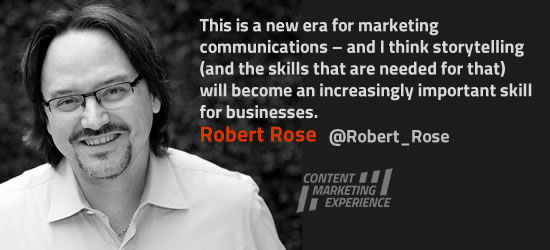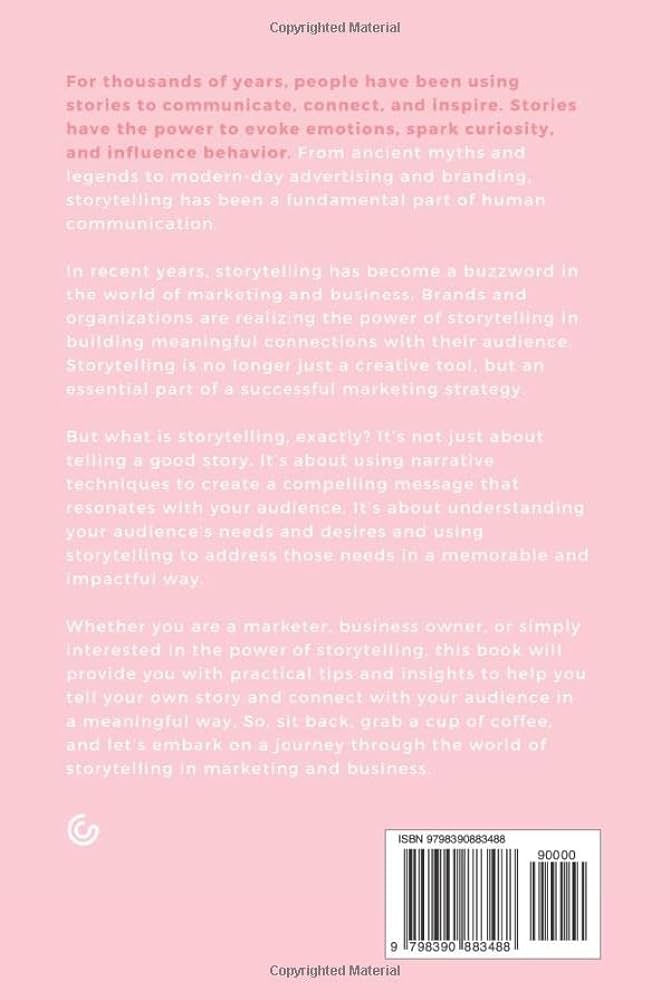Why is Storytelling an Important Skill?
Storytelling is an important skill because it captivates and engages audiences, making information more memorable and relatable. Effective storytellers can inspire, educate, and persuade through the power of storytelling.
Introduction (120 words): Storytelling is an essential skill that has been used for centuries to connect, engage, and captivate audiences. From ancient myths and legends to modern-day novels and films, stories have the ability to transport us to different worlds, evoke emotions, and leave a lasting impact.
But storytelling is not just limited to fictional narratives. In fact, it plays a crucial role in various aspects of our lives, such as marketing, education, and leadership. By weaving compelling narratives, storytellers can effectively communicate important messages, engage their audience, and create a connection that goes beyond simple information sharing. Whether it’s in a business pitch, a classroom lecture, or a motivational speech, the power of storytelling lies in its ability to make complex ideas more relatable, memorable, and persuasive. So, why is storytelling such an important skill? Let’s explore its significance in more detail.
The Power Of Storytelling
Storytelling is an essential skill as it captivates an audience, evokes emotions, and conveys messages effectively. It allows people to connect, learn, and remember information better, making it a powerful tool in communication and persuasion.
Storytelling is a powerful skill that has been passed down through generations, captivating audiences and connecting people emotionally. Whether in books, movies, or personal conversations, stories have a unique ability to engage and transport individuals to different worlds, leaving a lasting impact on their thoughts and emotions.
The power of storytelling lies in its ability to evoke empathy, inspire imagination, and bring people together in a shared experience.
How Storytelling Connects People Emotionally:
- Creates a sense of empathy: Stories have the power to make us feel what the characters are going through, enabling us to step into their shoes and experience their emotions. This emotional connection fosters empathy and understanding between individuals.
- Inspires imagination: Through storytelling, individuals are transported to different worlds, allowing their imaginations to run wild. Stories can ignite creativity, expand perspectives, and encourage individuals to think beyond their own experiences.
- Builds connections: Sharing personal narratives and experiences through storytelling creates a sense of connection and belonging. It allows people to find common ground, relate to one another, and build deeper relationships based on shared experiences.
- Facilitates learning: Stories make complex concepts and ideas more relatable and easier to understand. By using storytelling as a tool for education, information becomes more engaging, memorable, and impactful.
- Creates a memorable experience: When information is presented in a narrative format, it becomes more memorable. Stories have a way of sticking in our minds, making the message more likely to be retained long after the story has been told.
The power of storytelling lies in its ability to connect people emotionally, inspire imagination, and create lasting memories. By harnessing this skill, individuals can captivate audiences, evoke empathy, and foster a sense of community. Whether it’s in personal interactions, marketing strategies, or the sharing of ideas, storytelling is an essential skill that can have a profound and lasting impact.
So, let your words weave tales that captivate, inspire, and bring people together.
Storytelling In Personal And Professional Settings
Storytelling is an essential skill in both personal and professional settings. It captivates audiences, conveys messages effectively, and creates memorable connections. Mastering this art can greatly enhance communication, making it a vital skill in various aspects of life.
The Impact Of Storytelling In Personal Relationships
- Storytelling allows individuals to connect emotionally and establish a deeper bond with others.
- When sharing personal stories, people are more likely to open up and be vulnerable, leading to stronger relationships.
- Storytelling helps build trust and empathy, as it allows individuals to understand different perspectives and experiences.
- Personal stories have the power to inspire, motivate, and create a sense of shared values and experiences.
Storytelling is not limited to personal interactions alone. It plays a crucial role in professional settings as well. Whether in team meetings or client presentations, storytelling enhances communication and leaves a lasting impact. Here’s how:
How Storytelling Enhances Communication In The Workplace
- Engages and captivates the audience: Stories have a way of capturing attention and creating a memorable experience, ensuring that your message resonates with the listeners.
- Simplifies complex information: By presenting information in a narrative form, storytelling helps break down complex ideas into easily understandable concepts.
- Sparks creativity and innovation: Stories have the power to ignite imagination and encourage new perspectives, allowing for innovative solutions and ideas to flourish.
- Builds strong connections: Just as in personal relationships, storytelling in the workplace helps build strong connections and foster a sense of camaraderie among team members.
- Influences decision-making: Stories have a persuasive effect, persuading listeners to adopt a particular point of view or make certain decisions.
- Enhances memorability: Facts and statistics may be forgotten, but stories are remembered. By incorporating storytelling into your professional communication, you make your message more memorable.
In both personal and professional settings, storytelling is an essential skill that creates meaningful connections, enhances communication, and leaves a lasting impression.
The Role Of Storytelling In Education
Storytelling is a crucial skill in education, enabling students to engage and connect with subjects on a deeper level. By weaving narratives into lessons, educators can foster imagination, enhance critical thinking, and facilitate better retention of information.
Storytelling is a powerful skill that has been used since time immemorial to captivate audiences and convey important messages. In today’s fast-paced digital world, storytelling remains a crucial skill, not only in the realm of entertainment but also in education.
The role of storytelling in education is multifaceted, as it not only engages students but also enhances learning outcomes. Let’s explore how storytelling serves as an effective teaching tool and how it contributes to an enriching educational experience.
Storytelling As A Teaching Tool
- Storytelling creates a connection: Stories have the remarkable ability to create an emotional connection between the listener and the content being shared. When teachers use storytelling in their lessons, they can establish a meaningful connection with their students, making the learning process more relatable and engaging.
- Enhancing comprehension and retention: By presenting information in a narrative form, storytelling helps students understand and remember complex concepts more effectively. Storytelling activates various regions of the brain, including those responsible for language processing, sensory perception, and emotional response, resulting in enhanced comprehension and retention.
- Fostering critical thinking: Stories often present characters facing challenging situations, which encourages students to think critically and analyze different perspectives. Through storytelling, educators can prompt students to reflect on the plot, characters’ motivations, and the implications of the story’s events, fostering critical thinking skills.
- Enhancing creativity and imagination: Storytelling stimulates students’ creativity and imagination by transporting them to different worlds, time periods, or even into the minds of fictional characters. It ignites their curiosity and encourages them to explore new ideas, perspectives, and possibilities.
- Encouraging empathy and understanding: Stories have the power to evoke empathy and understanding by placing students in the shoes of others. By immersing students in diverse narratives and introducing them to characters from different backgrounds and cultures, storytelling promotes empathy, compassion, and a broader understanding of the world.
Enhancing Learning Outcomes Through Storytelling
- Better information retention: The use of storytelling in education has been found to improve information retention among students. When information is presented within a narrative framework, it becomes more memorable and easier to recall. Students are more likely to remember important details and concepts when they are intertwined within a compelling story.
- Increased engagement: Storytelling captures students’ attention and maintains their engagement throughout the learning process. By incorporating captivating narratives into lessons, educators can create a dynamic and interactive classroom environment that motivates students to actively participate and learn.
- Improved communication skills: Storytelling not only improves students’ listening and comprehension skills but also enhances their communication abilities. When students engage with stories, they develop their own storytelling skills, learning how to structure narratives, choose the right words, and deliver their ideas effectively.
- Cultural preservation and knowledge transfer: Storytelling plays a pivotal role in preserving and passing down cultural traditions, values, and knowledge from one generation to another. It allows students to connect with their heritage and understand the perspectives of different cultures, promoting cultural diversity and appreciation.
- Holistic learning experience: Combining storytelling with other educational methods, such as visual aids, hands-on activities, and discussions, creates a holistic learning experience. Storytelling can be integrated into various subjects, from history and literature to science and mathematics, making the learning process more comprehensive and enjoyable.
Storytelling is not just a form of entertainment; it is an indispensable tool in education. It fosters a deep connection between educators and students, enhances comprehension and critical thinking skills, stimulates creativity and imagination, and promotes empathy and understanding. By incorporating storytelling into the educational journey, we can create an engaging, effective, and holistic learning experience for students, enhancing their overall academic outcomes.

Credit: www.i-scoop.eu
The Influence Of Storytelling In Marketing And Advertising
Storytelling is a vital skill in marketing and advertising as it captivates audiences and creates an emotional connection. Through narratives, brands can convey their values, engage customers, and boost brand loyalty. A well-crafted story is a powerful tool that can differentiate a brand from competitors and leave a lasting impact.
Storytelling has long been recognized as a powerful tool for engaging audiences and creating connections. In the realm of marketing and advertising, the influence of storytelling is undeniable. By harnessing the power of stories, brands can captivate their target consumers, leaving a lasting impression that sets them apart from competitors.
Let’s explore how brands use storytelling to create a connection with consumers and the storytelling techniques employed in advertising campaigns.
How Brands Use Storytelling To Create A Connection With Consumers:
- Building emotional connection: Brands utilize storytelling to evoke emotions and create a sense of relatability with their target audience. By weaving narratives that align with consumers’ values, aspirations, and experiences, brands can establish a deep emotional connection.
- Crafting brand identity: Storytelling allows brands to shape and communicate their unique identity, values, and mission. Through compelling narratives, brands can establish a distinct personality and showcase what sets them apart from others in the market.
- Engaging and retaining customers: Stories have a way of capturing attention and holding it. Brands that leverage storytelling effectively can not only engage potential customers but also foster long-term loyalty. By consistently delivering captivating narratives, brands can build a community of dedicated followers.
- Differentiating from competitors: In crowded markets, differentiation is key. By infusing storytelling into their marketing strategies, brands can stand out amidst the sea of competitors. A well-crafted story can differentiate a brand by creating a memorable and unique experience for consumers.
Storytelling Techniques In Advertising Campaigns:
- Character-driven narratives: Creating relatable characters allows brands to humanize their products or services. By showcasing how their offerings positively impact the lives of these characters, brands can make a compelling case for why consumers should choose them.
- Conflict and resolution: Stories thrive on conflict and resolution, and advertisements are no different. Advertising campaigns often employ this technique to create a sense of tension or problem that is eventually resolved through the use of the brand’s product or service.
- The power of visuals: Visual storytelling is a potent technique used in advertising campaigns to communicate brand messages without words. Through imagery, colors, and design, brands can convey emotions, evoke curiosity, and captivate the audience’s attention.
- Story arcs and plot twists: Just as in any compelling story, advertising campaigns use twists and turns to engage and surprise the audience. By employing unexpected plot developments or twists, brands keep consumers interested and eager to learn more.
- Narrative consistency: Consistency is crucial in storytelling, and advertising campaigns understand this well. By maintaining a consistent narrative across different advertisements and platforms, brands can reinforce their messages, strengthen their brand identity, and build trust with consumers.
Storytelling has become an integral part of marketing and advertising. By employing various storytelling techniques, brands can create a connection with consumers, differentiate themselves from competitors, and ultimately, drive their marketing and advertising efforts towards success.
Developing Storytelling Skills
Storytelling is an essential skill because it captivates, engages, and resonates with listeners, fostering a deeper connection and understanding. It allows individuals to convey ideas, ignite emotions, and inspire action effectively.
Storytelling is an essential skill that has been ingrained in human culture since the dawn of time. Through the art of storytelling, individuals can captivate an audience, inspire emotions, and effectively convey messages. Whether it’s a novel, a movie, or a simple anecdote shared among friends, stories have the power to connect people on a deeper level.
Developing storytelling abilities not only enhances our personal communication skills, but it also enriches our professional lives. In this section, we will explore some tips for improving storytelling abilities.
Tips For Improving Storytelling Abilities:
- Know your audience: Understanding who you are telling the story to is crucial. Tailor your storytelling style, language, and content to match the preferences and interests of your audience. This will help you engage and connect with them on a more personal level.
- Structure your story: A well-structured story keeps the audience engaged and creates an emotional impact. Consider using the traditional narrative structure, including an introduction, rising action, climax, falling action, and resolution. This framework provides a clear progression, ensuring that your story flows smoothly.
- Develop compelling characters: Characters are the heart of any story. Flesh them out by giving them unique personalities, beliefs, and motivations. This adds depth and relatability, enabling your audience to connect with the characters and become invested in their journeys.
- Use vivid imagery: Paint a picture with your words by using descriptive language and sensory details. This not only helps your audience visualize the story but also creates a more immersive experience. Engaging the senses can make your storytelling more impactful and memorable.
- Incorporate emotions: Emotions are powerful tools in storytelling. By evoking feelings such as joy, sadness, fear, or surprise, you can create a deeper connection with your audience. Make them care about what happens in the story by appealing to their emotions.
- Practice active listening: Good storytelling involves not only the act of speaking but also active listening. Pay attention to the reactions and responses of your audience. Adjust your storytelling accordingly based on their engagement levels, ensuring that you keep them hooked throughout the narrative.
- Use storytelling techniques: Explore various storytelling techniques, such as foreshadowing, suspense, or humor, to add complexity and interest to your stories. Experiment with different techniques to find the ones that resonate with your style and the message you want to convey.
- Seek feedback: Don’t be afraid to ask for feedback from others. Whether it’s from friends, colleagues, or a writing group, their insights can provide valuable perspective and help you identify areas for improvement. Constructive criticism can be instrumental in honing your storytelling skills.
- Draw inspiration from different sources: Expand your storytelling repertoire by consuming various forms of media and literature. Draw inspiration from books, movies, plays, or even real-life events. The more varied your sources of inspiration, the richer and more diverse your storytelling abilities will become.
- Practice, practice, practice: Like any skill, storytelling improves with practice. Embrace opportunities to tell stories, whether it’s with friends, at social gatherings, or in professional settings. The more you practice, the more comfortable and confident you will become in sharing your narratives.
By following these tips and investing time and effort into developing your storytelling abilities, you can unlock the power of storytelling and enhance your communication skills both personally and professionally. Become a master storyteller and watch as your tales captivate and leave a lasting impact on your audience.
Frequently Asked Questions On Why Is Storytelling An Important Skill?
What Are 3 Benefits Of Story Telling?
Storytelling has three key benefits: capturing attention, creating emotional connections and enhancing understanding.
What Is The Powerful Role Of Storytelling?
Storytelling plays a powerful role by captivating audiences, evoking emotions, and effectively conveying messages.
What Are The 3 Most Important Aspects Of Storytelling?
The three essential aspects of storytelling include plot development, relatable characters, and emotional engagement.
Why Is Storytelling Important In Business?
Storytelling is important in business because it helps to create an emotional connection with customers, engages their attention, and makes information more memorable. It can also differentiate a brand from competitors and convey the brand’s values and mission in a compelling way.
Conclusion
Effective storytelling is a vital skill that offers numerous benefits in various aspects of life. By captivating listeners with engaging narratives, individuals can effectively convey ideas, inspire others, and build strong connections. In marketing and advertising, storytelling has immense power to create emotional connections with consumers, increasing brand loyalty and driving sales.
Moreover, storytelling fosters empathy and understanding, facilitating effective communication and conflict resolution. It also aids in memory retention, as stories are easier to remember compared to plain facts or information. Storytelling also plays a crucial role in education, as it enhances comprehension and encourages critical thinking skills.
Furthermore, mastering this skill cultivates creativity and imagination, enabling individuals to think outside the box and find innovative solutions to challenges. Therefore, investing time and effort in developing storytelling abilities is essential for personal growth and success in various domains.



